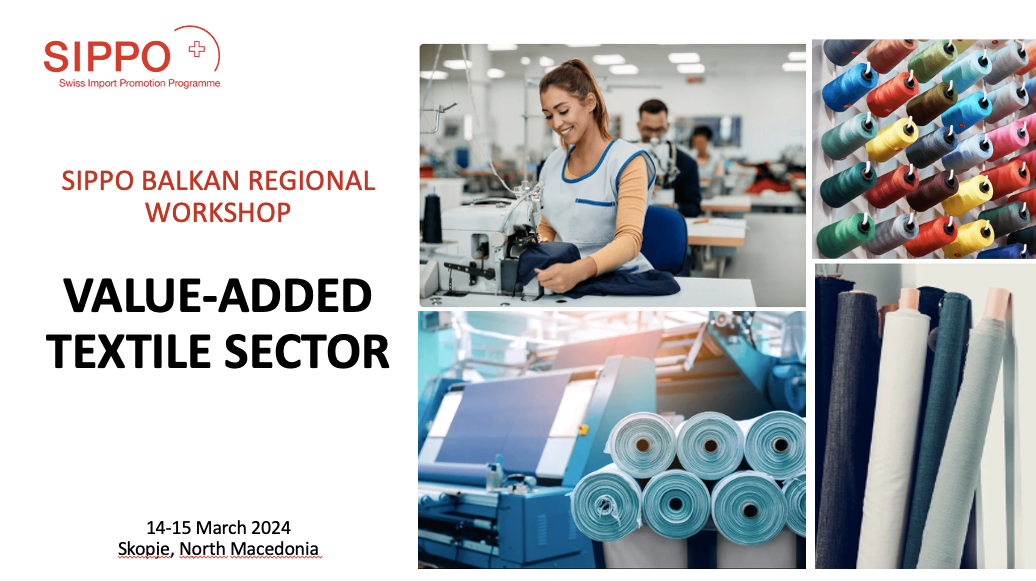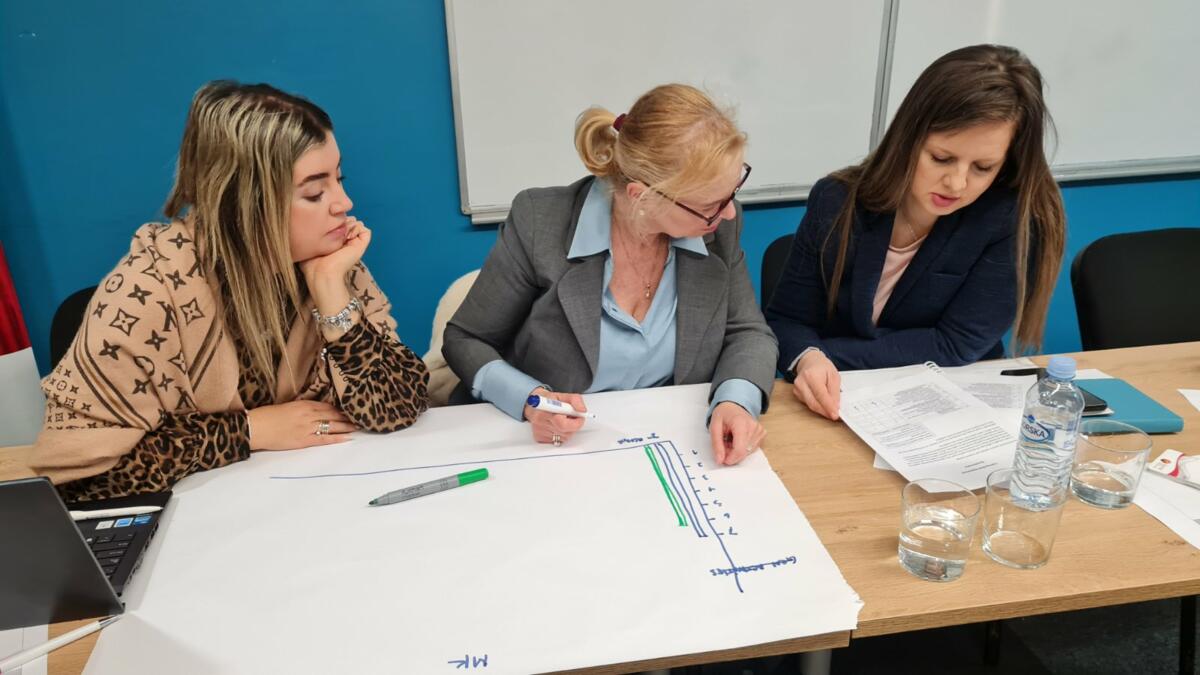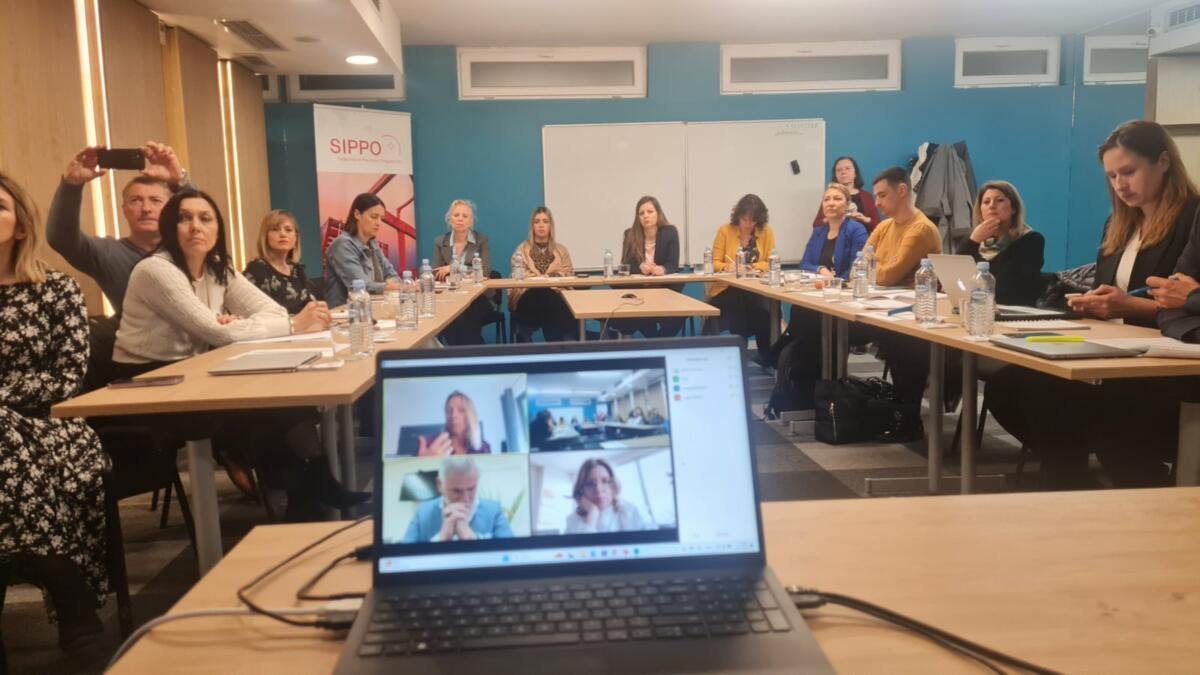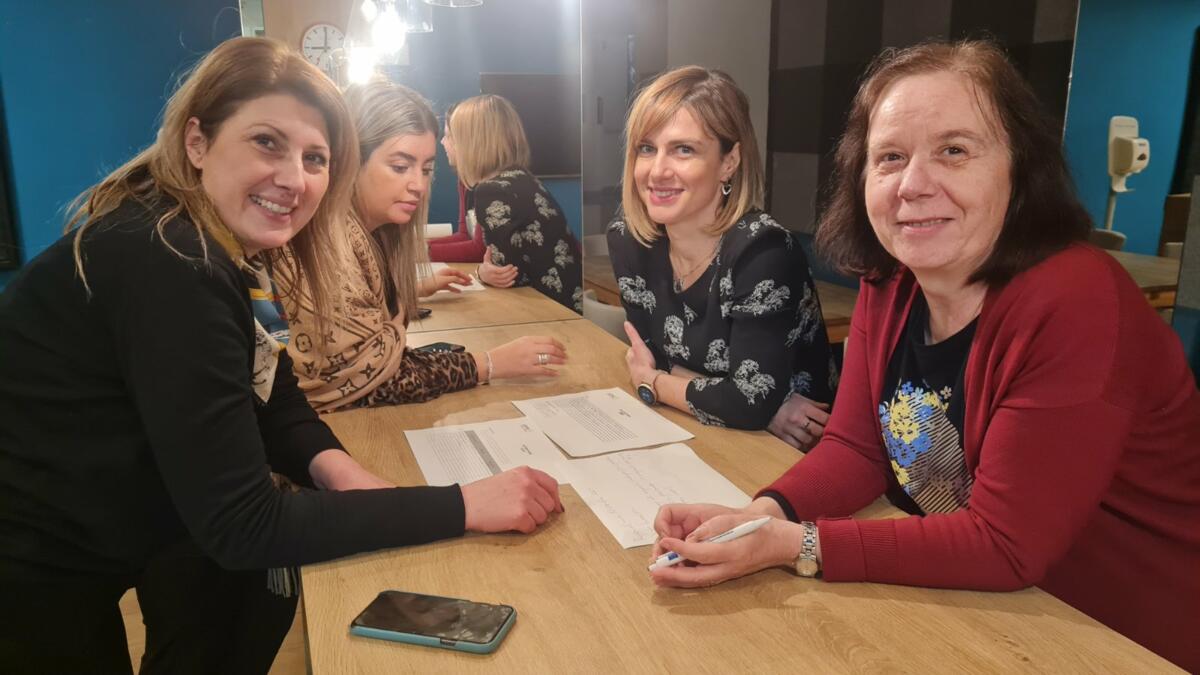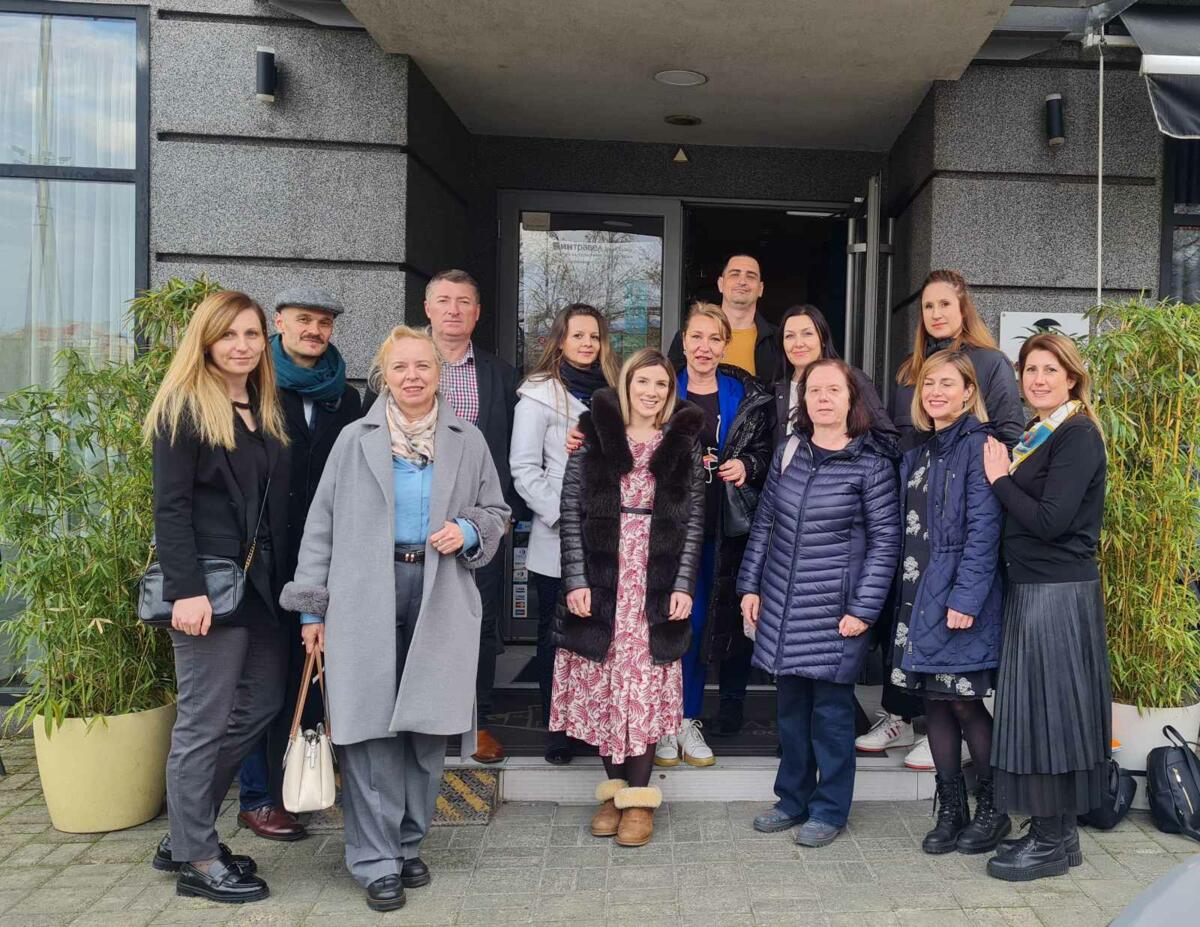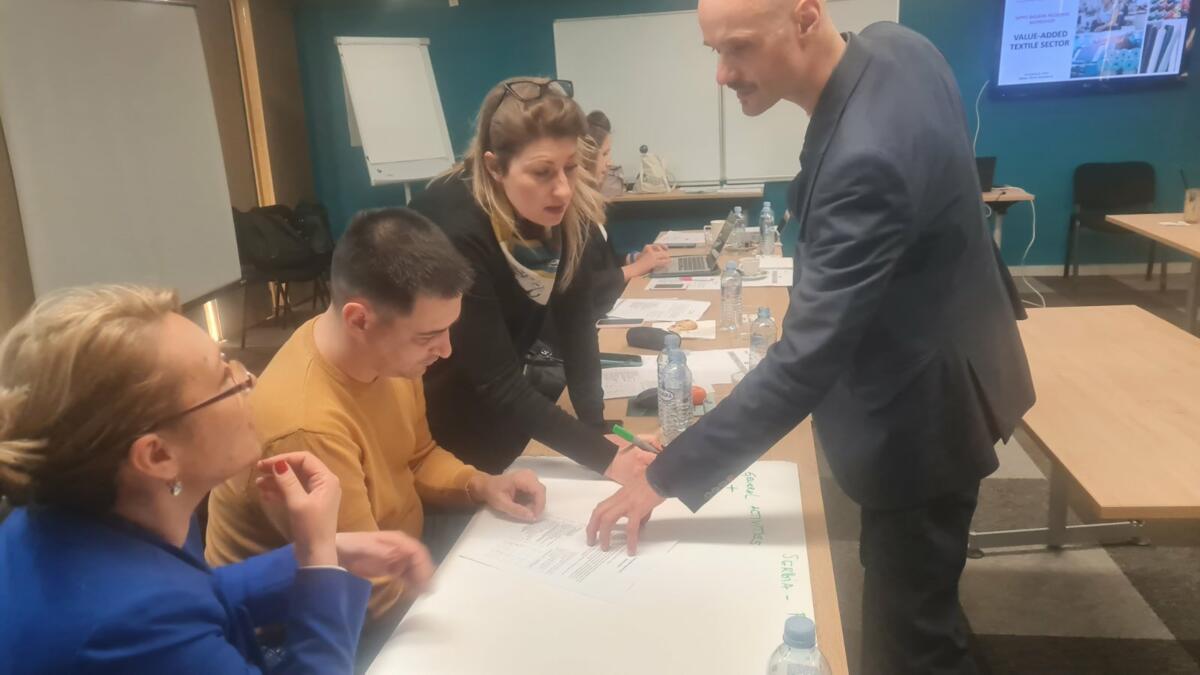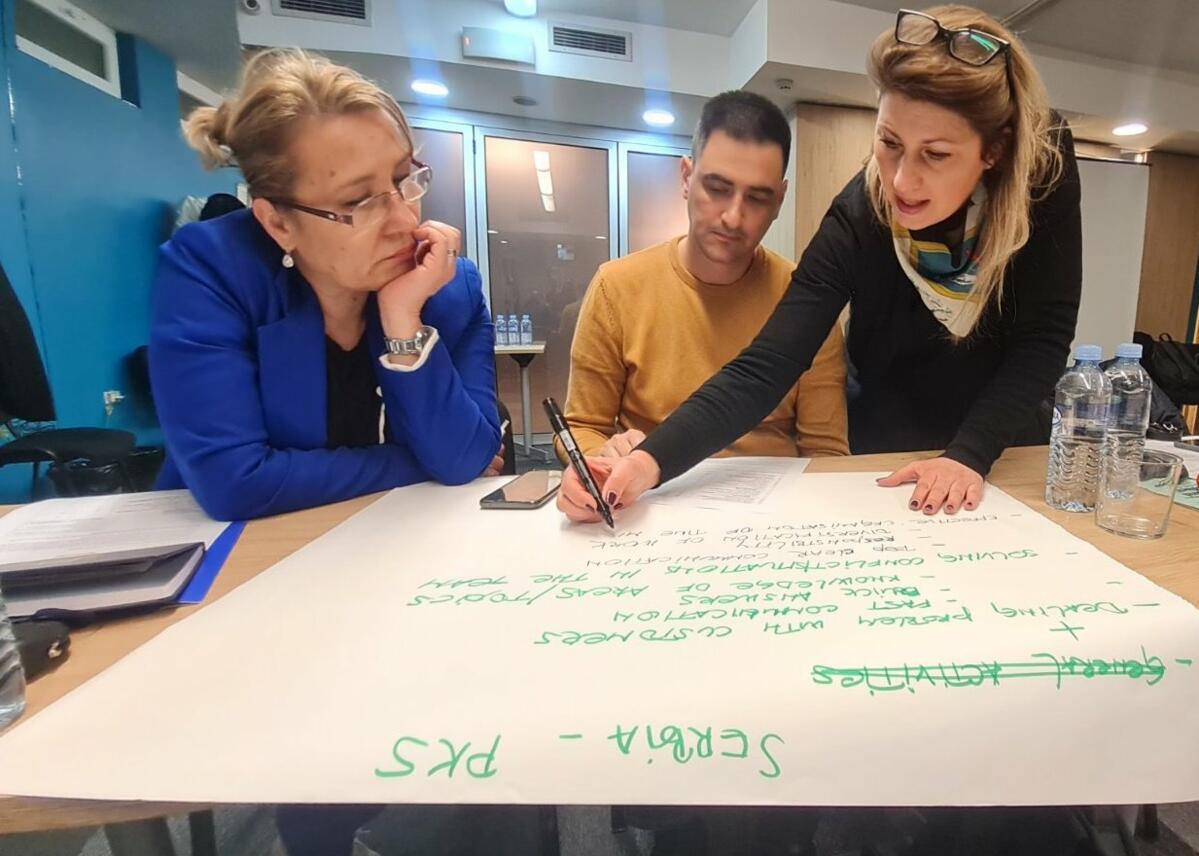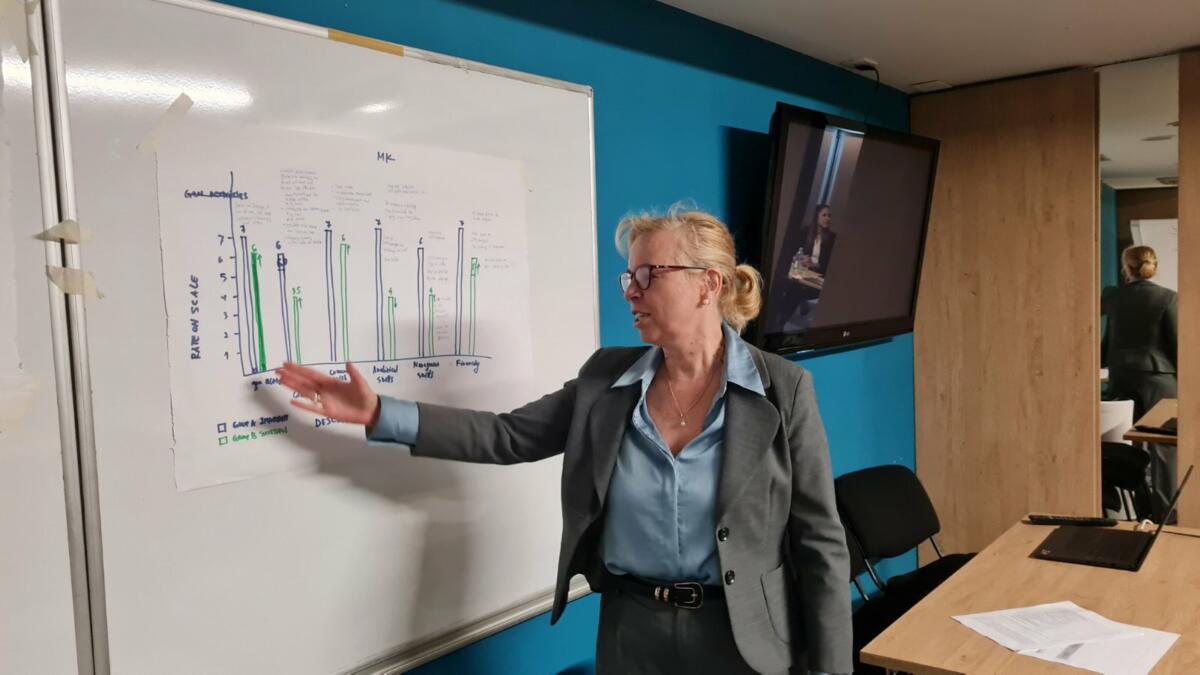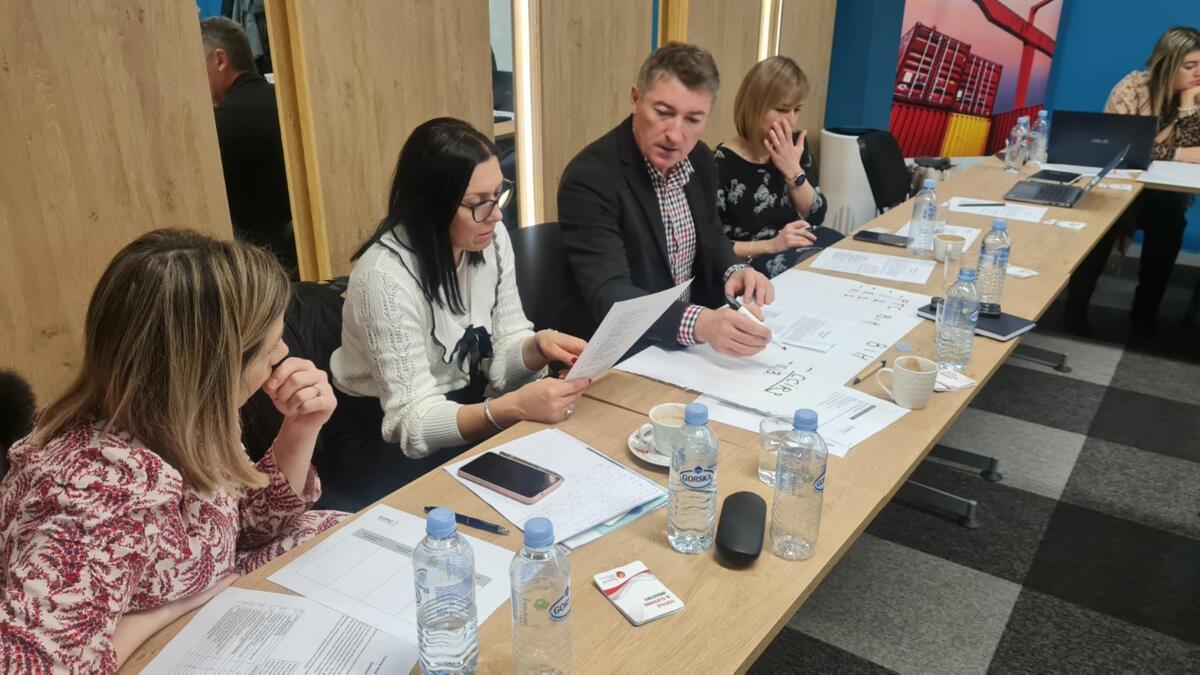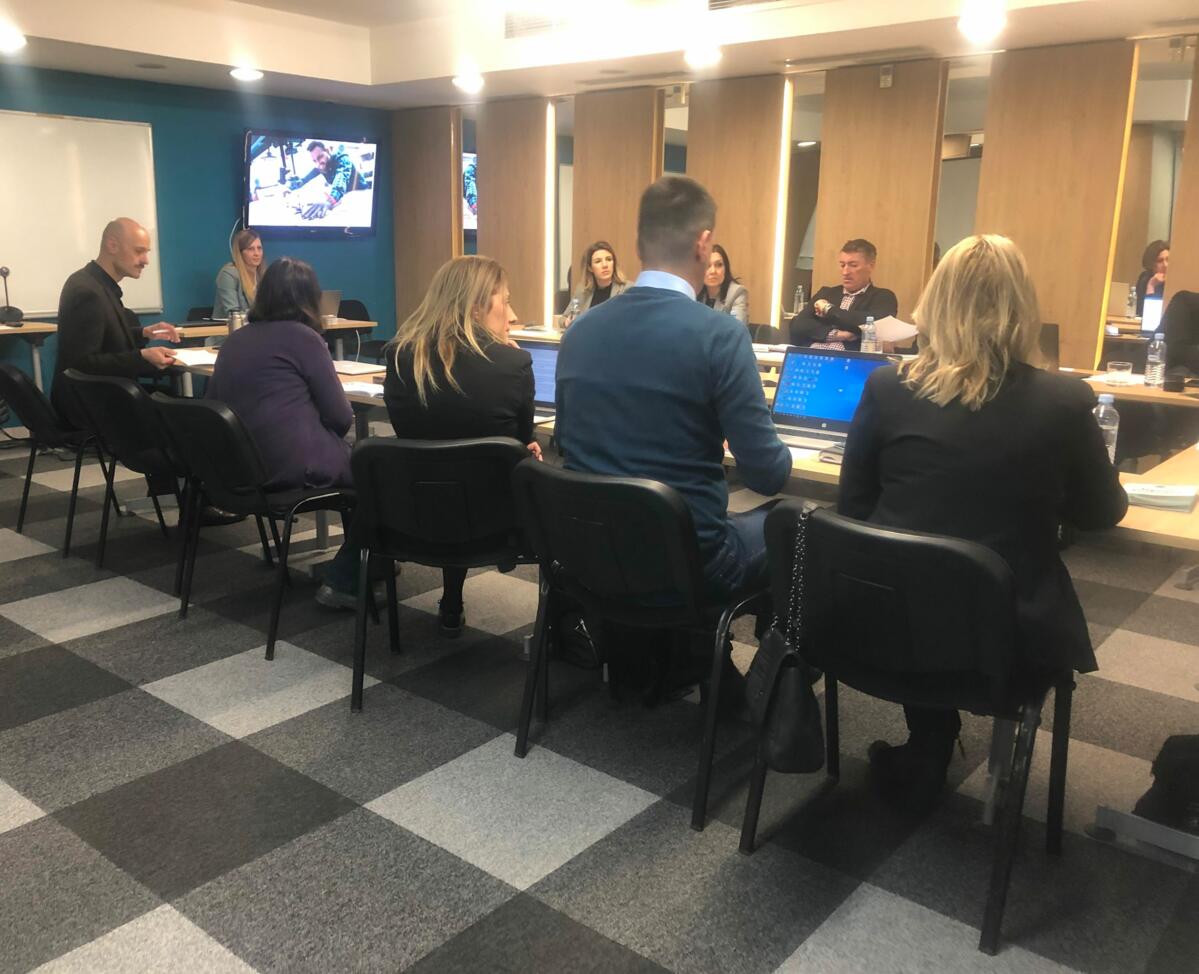Balkan Regional Worshop on Value-added Textile
Over 20 Business Support Organizations (BSOs) representatives convened in Skopje, Macedonia, to share best practice, enhance industry knowledge, and discuss topics such as compliance with international standards, circular economy, sustainability, and digitalization.
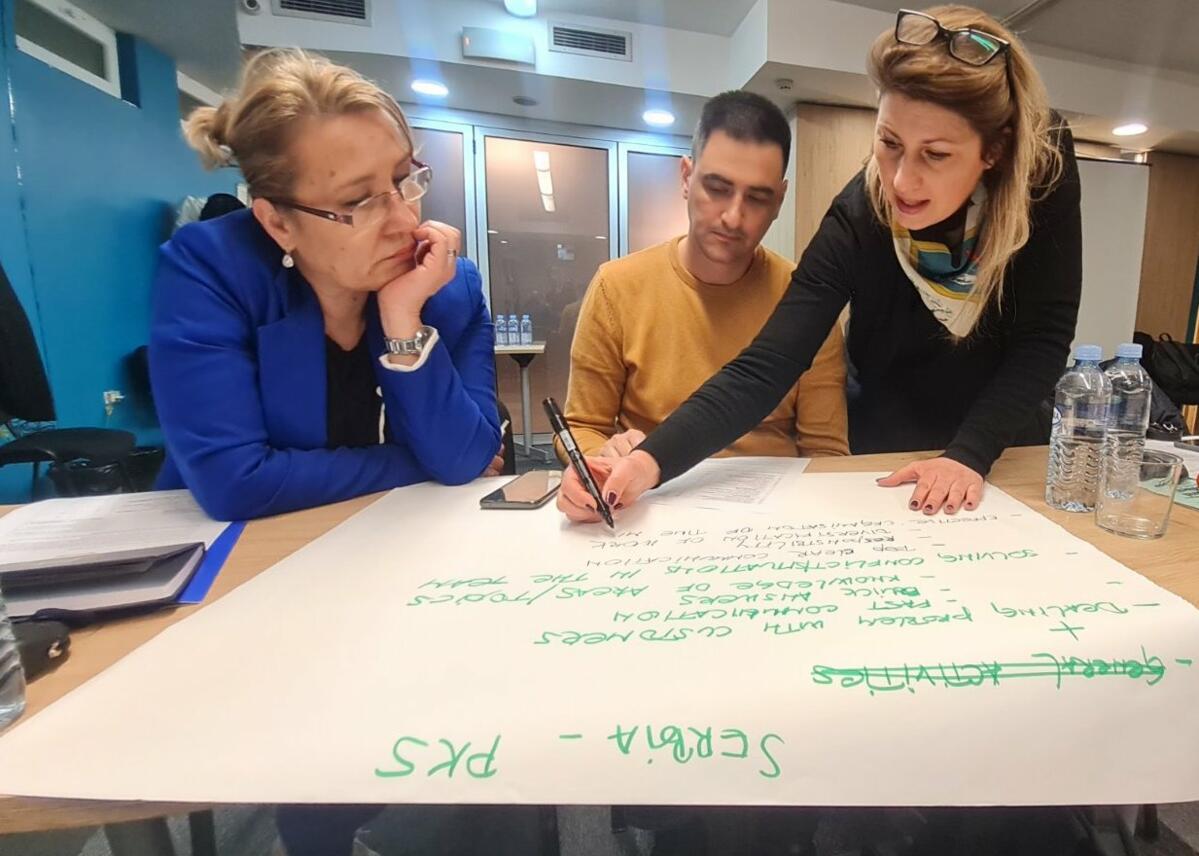
The regional workshop on the textile industry of the Western Balkan countries, dedicated to the possibilities of improving the cooperation of business support organizations of Serbia, North Macedonia, Bosnia and Herzegovina and Albania, brought together over 20 representatives of business support organizations, sector associations and relevant experts. The regional workshop on the textile industry, which took place in Skopje from March 14th to 15th 2024, was organized with the aim of improving dialogue, better exchange of knowledge and experience, and participation in joint projects of the BSOs in the Western Balkans.
First joint SIPPO activity with textile industry of the Western Balkans
The regional workshop was held with the support of the Swiss Import Promotion Program (SIPPO) in cooperation with the regional BSOs partners from the textile industry of the Western Balkans. This is a first joint activity of SIPPO which is active in Albania, Bosnia and Herzegovina, North Macedonia and Serbia and it came as an initiative from the BSOs in these countries.
Representatives from the following business support organizations participated in the Regional Workshop: from North Macedonia - Invest North Macedonia and the Textile Trade Association-Textile Cluster; from Serbia - Chamber of Commerce and Industry of Serbia, the Association for the Textile, Clothing, Leather and Footwear Industry and the Trade Fairs Department, and from Bosnia and Herzegovina - the Chamber of Commerce of the Republic of Srpska, Association for textile, leather and footwear and Foreign Trade Chamber of Bosnia and Herzegovina, Association for Textile, Leather and Footwear.
Bringing everyone to the table
This workshop offered numerous benefits and opportunities for stakeholders in these countries. One of the main advantages for the BSOs was knowledge and experience sharing. The BSOs were able to learn from each other about best practices and industry insights, which help to improve their own operations and services provided to the private sector.
Presentation by Peter Flückiger, Director of the Swiss Textile Association
The workshop included capacity-building activities to help BSOs improve compliance with international standards. Two European case studies were presented: The Swiss Textile Association and Istanbul Apparel Exporters’ Association (iHKiB). Of particular importance was the participation of Mr. Peter Flückiger, director of the Swiss Textile Association, who during his online presentation presented the Swiss association and emphasized his openness to establishing cooperation with the business support organizations from the Balkan countries on the exchange of specific knowledge and experiences to more effectively support their members.
Circular economy, sustainability, and digitalization as key principles
Ms. Hale Gülbaz, Team Leader of the iHKiB R&D Department, the largest business organization in this sector in Turkey, presented online the organization's structure, business services they provide to their members and activities. On this occasion, she expressed her interest in getting to know and seeing the possibilities of establishing cooperation with the participating business support organizations. At the same time, she specifically noted the importance of further improving the application of circular economy principles, sustainability, and digitalization of the textile industry in order to strengthen the competitiveness of the textile companies on foreign markets.
Addressing market trends and sustainability challenges
Addressing market trends and sustainability challenges are crucial in the textile industry, and these topics were thoroughly discussed during the workshop's insightful online panel discussion organized by SIPPO with participation of Mr. Arno Scheidmann, the director of Karma Bella, a renowned Dutch textile company, Ms. José Koopman, a sector expert in sustainable clothing and textiles, and Ms. Ljupka Miladinova Djambazovski, the director of Albatros, a Macedonian textile company. The discussion delved into critical issues facing the European textile market, notably the puzzle of declining demand contrasted with escalating production costs. One resounding consensus emerged: price remains the most important for importers, who are the primary clientele for our textile enterprises.
Challenges: demographic changes and the prevalence of fast fashion
Moreover, there was discourse on the aging demographic in Europe and shrinking labor force within the Western Balkans, particularly affecting labor-intensive industries. Furthermore, the prevalence of fast fashion was underscored, coupled with the challenge of ineffective textile waste management. In light of these challenges, the panelists stressed the potential for the Western Balkans' textile industry to thrive - a shift towards small-scale orders/supply; high-quality production tailored for established brands and corporate wear. They also emphasized the imperative for rigorous compliance to quality standards, embracing principles of circular economy, sustainability, and digitization as key strategies for future growth and competitiveness.
Platform to explore cross-border collaborations and partnerships
The regional workshop provided BSOs with a platform to explore cross-border collaborations and partnerships, paving the way for potential expansion into new markets. Participants in the textile industry of the Western Balkans also embraced the idea of enhancing regional cooperation, improving communication among business organizations, and introducing tailored business services to meet companies’ needs. Additionally, they committed to joint activities and projects aimed at enhancing the competitiveness of the textile industry.
The next Regional Workshop Textiles is scheduled for the end of 2024 and will be announced on our agenda page: https://www.sippo.ch/agenda.



 Colombia
Colombia












